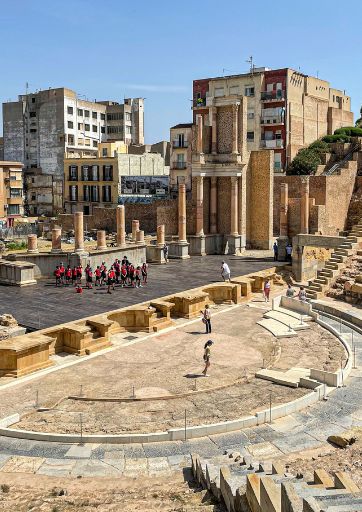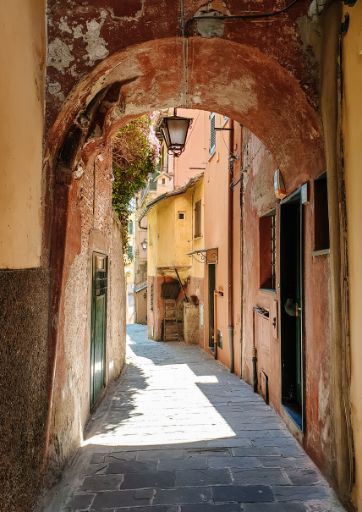Training Team Testimonials Resources Blog…
Contact Us
Company Registered in Borgo Berga, Vicenza, Italy, 36100.
Registration Number (Partita Iva) 04299640245. Operating Worldwide.
JPM Business Solution
So you’re finally going to visit Italy. Or maybe your family is going to live there! If YOU are going to Italy soon for the first time, this article is for you. Find out how you can adapt and be culturally prepared for your upcoming Italy visit or long-term stay in Bella Italia!
Alright, so first of all, I should tell you that I have been lucky enough to enough to live in Italy for the last 18 years. I’m a permanent resident with a carta di soggiorno, or long-term permit of stay, and soon I will apply for citizenship. I am also a cross-cultural trainer and specialist, meaning I teach people how to behave appropriately, adapt, work and do business with other cultures.
Now enough about me. Let’s talk about YOU and your upcoming visit to Italy.
That’s right — with different culture, different customs, different mentality, different ways of living, and different ways of doing things.
People speak a different language, Italian, and many do not speak English. Please don’t expect that everyone will speak English. If they do speak English, be grateful and patient with them. It would also be good for YOU to learn a little Italian, as it will help you build bridges with people.
Part of the fun and excitement of visiting a new country is the fact that it is different and unique.
There will be some times when you will say “Wow, that’s so amazing!” and other times when you will say, “Huh?” Yes, there will be utterly confusing and nonsensical moments. Don’t try and analyze too much.
The fact that it’s different is what makes it so interesting. We all come with our own cultural conditioning, and that’s okay–no one is wrong, or better than the other. Different cultures are what make the world a beautiful place.
Now, keeping in mind that things are different, means that also rules will be different.
Just because you’re a tourist doesn’t mean you can do whatever you want. There have been countless stories of tourists doing strange things in Italy.
For example, this summer there were several tourists who damaged historical sites. An American tourist threw a scooter down Rome’s Spanish Steps, causing €25,000 damage.
There were also incidents of tourists crashing drones into monuments in Italy, as well as vacationers in Venice who got fined for swimming in the canals. Also keep in mind that there is a dress code for entering certain religious sites: so please be sure to check that you are dressed properly before entering.
—> 10 Observations of Italian Bureaucracy
Speaking of historical sites, remember that the idea of beauty is different in Italy.
Back in the US, I was quite used to looking at something new and modern as beautiful. In Italy, however, beauty lies in the history of old buildings, as ancient architecture speaks volumes about the essence of a society. Remember that the US is a much newer country, with a history of just under 250 years old.

Well, in Italy, you will find buildings and landmarks that are 2,000 years old. For example, our second apartment is in a building that was first built in 1 B.C. in the Teatro Romano, or Roman Theatre. Of course, it was restored many times, but some of the original stones of the building are still there, and that is considered beautiful.
Maybe in the US, the idea of beauty is slightly different. We have this general collective belief that if something is old, well why don’t we tear it down and build a new one? That mentality is different in Italy.
They want to preserve and protect history rather than rebuild it.

4. Everything is smaller in Italy.
It seems like in the US, everything we have is big: big cars, big houses, big lawns, big milk cartons, big plates, and big portions in restaurants.
Well, in Italy, everything is much smaller. The homes are smaller, hotel rooms are smaller, plates and portion sizes are much smaller, streets are narrower, and so on.
You have to remember that Italian cities were built on the idea of a small, walkable and circular city center. Then, the population increased, and slowly these cities expanded, but remember from point 3: Italy preserved its old historical city format. That means the streets are still small.
There are reasons for the smallness of other things. For example, milk cartons are smaller because Italians don’t use as many preservatives as in the US, so fresh products don’t last very long. Therefore, there’s no need to buy a huge container.
—> 6 Reasons to Live in a Small City instead of a Big City in Italy
Also, people don’t consume in excess like we do in the US, and finally, Italians typically like to do their shopping frequently, in small batches at the neighborhood grocer, so again, small containers.
Speaking of food and meals, the only thing that’s not smaller is the time spent on meals. For Italians, meal time is almost sacred. Spending time at the dinner table, savoring each plate, and having good conversation is a core value of Italian food culture.
In the US, we are always thinking about efficiency, so we would prefer to spend a short time eating and then move on to something else, but in Italy, time spent at the dinner table with beloved friends and family is never wasted time.
Yes, you will find that these costs are extremely high in Italy, and that’s why it’s extra important not to waste energy. Don’t forget to turn off lights, heaters, air conditioners, etc. when not in use. You will also find that in the winter, spaces are insufficiently heated, and in the summer, insufficiently cooled. It’s just a fact of life.
And it was always like this, even before the current energy crisis. Not all hotels have air conditioning, and even if they have it, often it doesn’t work. Also, there are two different buttons for the toilet flush: to save water. The smaller button is for a small flush and the big button is for a big flush.

So please, when you visit Italy, be mindful of your energy consumption, and considerate of your hosts. Turn off all electrical appliances when not in use, turn off water faucets as fast you can, and try to mindful of your energy consumption.
—> Three Reasons why I Settled in Italy
Well, that’s all for this short article of cultural lessons on Italy for teenagers. Thank you for reading, hope you found it useful and don’t forget to subscribe too on my YouTube Channel to get more videos on Italian life. Ciao for now, from bella Italia!
Everyone is welcome in Italy. Leave a comment below and find out more about this wonderful country.
Subscribe to my YouTube Channel to get more information about expat life, intercultural skills, and business abroad.

Subscribe now
Jan 18, 2023 | Business Abroad, Expat Life, Middle East | 0 Comments
Training Team Testimonials Resources Blog…
Jan 18, 2023 | Business Abroad, Expat Life, Intercultural Skills, Middle East | 0 Comments
Training Team Testimonials Resources Blog…
Nov 4, 2022 | Business Abroad, Expat Life, Middle East | 0 Comments
Training Team Testimonials Resources Blog…
Company Registered in Borgo Berga, Vicenza, Italy, 36100.
Registration Number (Partita Iva) 04299640245. Operating Worldwide.
JPM Business Solution
| Cookie | Duration | Description |
|---|---|---|
| cookielawinfo-checbox-analytics | 11 months | This cookie is set by GDPR Cookie Consent plugin. The cookie is used to store the user consent for the cookies in the category "Analytics". |
| cookielawinfo-checbox-functional | 11 months | The cookie is set by GDPR cookie consent to record the user consent for the cookies in the category "Functional". |
| cookielawinfo-checbox-others | 11 months | This cookie is set by GDPR Cookie Consent plugin. The cookie is used to store the user consent for the cookies in the category "Other. |
| cookielawinfo-checkbox-advertisement | 1 year | Set by the GDPR Cookie Consent plugin, this cookie is used to record the user consent for the cookies in the "Advertisement" category . |
| cookielawinfo-checkbox-necessary | 11 months | This cookie is set by GDPR Cookie Consent plugin. The cookies is used to store the user consent for the cookies in the category "Necessary". |
| cookielawinfo-checkbox-performance | 11 months | This cookie is set by GDPR Cookie Consent plugin. The cookie is used to store the user consent for the cookies in the category "Performance". |
| CookieLawInfoConsent | 1 year | Records the default button state of the corresponding category & the status of CCPA. It works only in coordination with the primary cookie. |
| viewed_cookie_policy | 11 months | The cookie is set by the GDPR Cookie Consent plugin and is used to store whether or not user has consented to the use of cookies. It does not store any personal data. |
| Cookie | Duration | Description |
|---|---|---|
| __cf_bm | 30 minutes | This cookie, set by Cloudflare, is used to support Cloudflare Bot Management. |
| Cookie | Duration | Description |
|---|---|---|
| _ga | 2 years | The _ga cookie, installed by Google Analytics, calculates visitor, session and campaign data and also keeps track of site usage for the site's analytics report. The cookie stores information anonymously and assigns a randomly generated number to recognize unique visitors. |
| _gat_gtag_UA_178010500_1 | 1 minute | Set by Google to distinguish users. |
| _gid | 1 day | Installed by Google Analytics, _gid cookie stores information on how visitors use a website, while also creating an analytics report of the website's performance. Some of the data that are collected include the number of visitors, their source, and the pages they visit anonymously. |
| CONSENT | 2 years | YouTube sets this cookie via embedded youtube-videos and registers anonymous statistical data. |
| Cookie | Duration | Description |
|---|---|---|
| ckid | never | This cookie is set by the provider Yieldoptimizer. This cookie is used to track visitors on multiple websites, inorder to serve them with relevant advertisement based on visitor's interest. |
| VISITOR_INFO1_LIVE | 5 months 27 days | A cookie set by YouTube to measure bandwidth that determines whether the user gets the new or old player interface. |
| YSC | session | YSC cookie is set by Youtube and is used to track the views of embedded videos on Youtube pages. |
| yt-remote-connected-devices | never | YouTube sets this cookie to store the video preferences of the user using embedded YouTube video. |
| yt-remote-device-id | never | YouTube sets this cookie to store the video preferences of the user using embedded YouTube video. |
| yt.innertube::nextId | never | This cookie, set by YouTube, registers a unique ID to store data on what videos from YouTube the user has seen. |
| yt.innertube::requests | never | This cookie, set by YouTube, registers a unique ID to store data on what videos from YouTube the user has seen. |
| Cookie | Duration | Description |
|---|---|---|
| SGPBShowingLimitationPage5221 | 1 day | No description |